Kamala Harris has officially been sworn in as the 49th vice president in U.S. history. For 232 years, white men have monopolized that office, and in taking her seat, Vice President
Harris has shattered multiple glass ceilings as a woman and a person of Black and South Asian descent. She’s disrupted centuries of exclusion within this specific hall of power in who and what she represents.
And yet her appointment wasn’t a neat conclusion to the four-year saga we’ve been navigating. After a year of deep pain for the Black community—one with a clear directive to reduce the size of our police and paramilitary forces—a Biden/Harris administration is not a cure-all. Vice President Harris's track record dazzles under certain lights, but her centrist stances on criminal justice made her an unlikely choice for the progressives she was intended to appeal to.
Many will ask us to forego one side of the story to highlight another, but we are capable of nuance. It is both true that Vice President Harris signals a new dawn for the role of women and women of color in politics and that the issues our communities are battling require more than identity politics. It is also true that we are now at the mercy of a Senate with zero Black women, now that Gov. Newsom has officially appointed Alex Padilla to Harris’s former California seat. Black women and women of color deserve to have a say at every level, and the fact that we traded one monumental shift for another lapse in representation shows just how far we still have to go.
Here to share their own reflections on this historic moment are eight dynamic Black and South Asian women, many of whom graduated from Harris’s alma mater:
I find myself standing in the glass of a shattered ceiling.
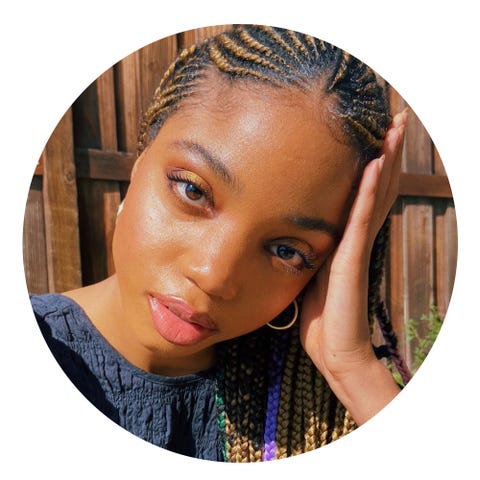
“I find myself standing in the glass of a shattered ceiling. As a second-year political science major at Howard University from California, I can’t help but see the historical magnitude of having an HBCU-educated, Greek-affiliated Black woman as the first Black and South Asian VP of the United States. While I believe that true liberation lies outside of a two-party system and will require the abolition of systems and structures both Biden and Harris uphold, I also believe that finding joy and/or excitement in Harris’s installment as the next VP is not a concession in our greater fight for liberation. And like any politician, Kamala isn’t—and shouldn’t be—protected from interrogation and accountability. Furthermore, we owe it to all Black women to find a way to navigate and call out the misogynoir clothed as critique that we will continue to see during her tenure. Undoubtedly, Vice President Kamala Harris is paving the way for Black women to lead and break glass ceilings until there are none left. In the words of Issa Rae, ‘I’m rooting for everybody Black.’” —Winter Breanne, activist and student
Women of color have, and will continue to be, the healers of this country.
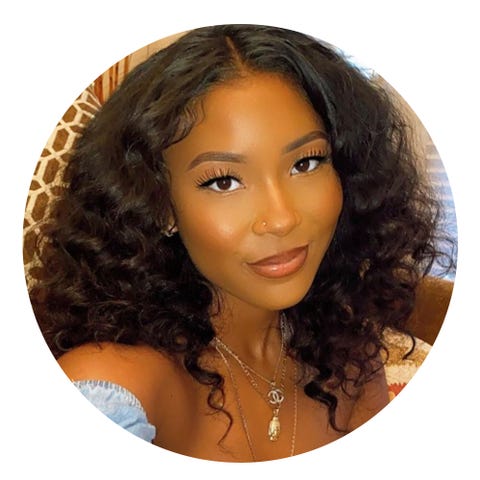
“The election of VP Kamala Harris was a monumental win for women of color, especially for women like myself who identify as biracial, or Black and Asian. Younger generations can now aspire to reach goals that once seemed unattainable because there is visible representation. Kamala’s success has torn down barriers and will ensure young queens that there’s a seat at the table with their name on it. To me, her triumph served as a reminder of how grateful we must be to our ancestors who paved the way. Minorities in the U.S. have come a long way, but we are nowhere near our peak. To be the first Black anything in the year 2021 is truly mind-blowing, but there is nothing we cannot achieve or let stand in our way. Women of color have, and will continue to be, the healers of this country.” —Jade Pinkett, professional dancer, model, and advocate
Are we wrapping other Black, Indian, and biracial girls in that same embrace in which we now hold Kamala?

“The new administration means hope. When Kamala Harris stepped onto that podium, suddenly the world was bigger, possibilities were greater, and the top looked a little more familiar. To have representation at that level was proof of what Indian women living in a patriarchal society have known for centuries: hum kisise kum nahin (we are no less than anyone else). The vice presidency no longer belongs to old, white men; now it belongs to us. And while I am proud and joyous, this election begs the question to all South Asians: Will the next Kamala only belong to us when she succeeds, or does she belong to us now because that is her birthright? Are we wrapping other Black, Indian, and biracial girls in that same embrace in which we now hold Kamala? Are we providing all our daughters, not just our sons, with the resources and opportunities to be the next Kamala? I'm hopeful that as much as Kamala Harris has become a symbol of hope for little girls, she's also become a message for our community: Let's heal our traumas, overcome our gender and racial prejudices, and invest in all our girls so that the next Kamala may go even further.” —Nidhi Bhatt, activist and brand strategist
I’m not interested in surface-level change.
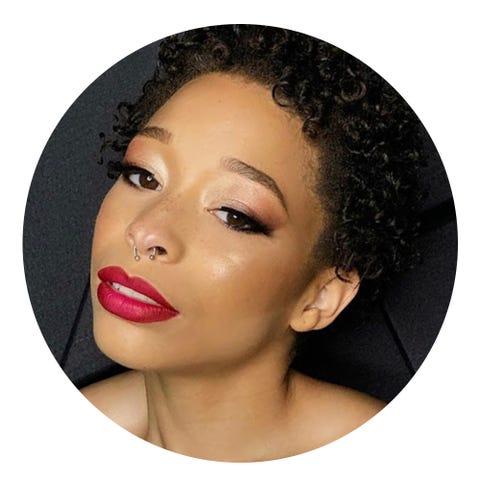
“I am a Black woman and graduate from the illustrious Howard University. Kamala Harris, a fellow alumna, has risen to a level of prominence no other woman has reached before. Joe Biden was vice president to our forever president, Barack Obama. Neither of them are Donald Trump or Mike Pence, which is why Americans voted overwhelmingly in their favor. However, we can not glorify them as our saviors when their careers required stepping over Black and Brown people. Representation does not overshadow their heavy hands upholding white supremacy. The fact that Vice President Harris is not Mike Pence does not negate her actions. Until those still impacted by her past actions receive justice and are intentionally centered in this new administration, how can we hope for a brighter future? I’m not interested in surface-level change. I’m not interested in spreading a false narrative. Hold Harris (and Biden) accountable for their harmful track records. Make us a priority for the future.” —Brooke Baker, communications strategist
When Black women do well, we all do well.
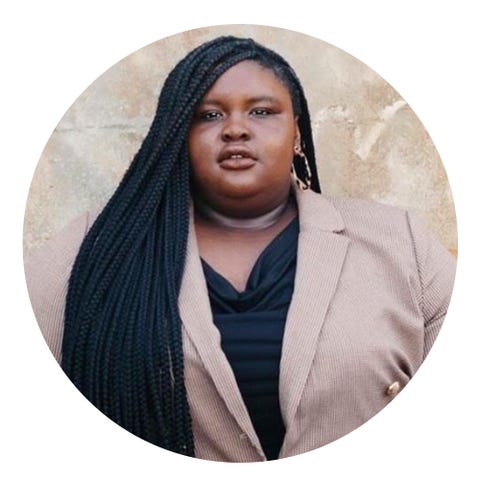
“As an organizer living in the South who identifies as a Black woman, I often find myself reflecting on the work and resilience of Black women who’ve been on the frontlines of the work for justice and equity for generations. I am encouraged by the ongoing struggle against voter suppression, the unarmed killings of Black people, the wealth gap, and other issues of inequality because, for all of these, I recognize that Black women have stood on the frontlines. Black women have a legacy of showing up to vote—and bringing their communities along with them. This moment is monumental for me, for my grandmother who grew up during a time of integration and massive resistance, and for all the Black women in my life who constantly find themselves in spaces where we are told we’re not enough, or that we must become someone else in order to reach our full potential. Today, I am proud to know that the Vice President of the United States is a Black woman who was educated at an HBCU. I am hopeful for what this will mean for Black women of all ages, across regions, across disciplines and professions. When Black women do well, we all do well. I am looking forward to Vice President Harris using her positioning as the first to make room for others, so that she is not the last.” —Zyahna Bryant, student and activist
Today, I'm feeling seen, and it is so, so comforting.
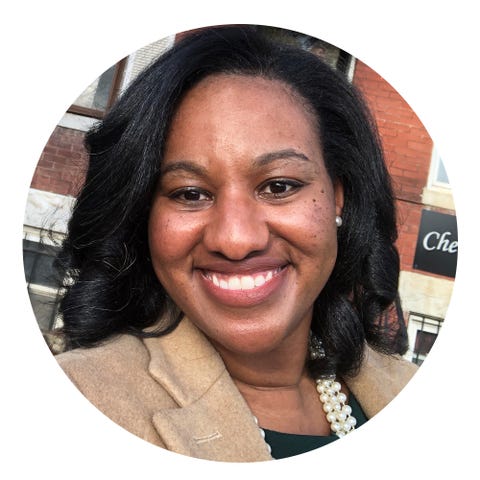
“No listening sessions, community tours, or town halls can replace the unique understanding gained through lived experience. For the most part, the people representing me at the highest levels of elected office always seemed so removed from the realities, struggles, and concerns I live with daily.I'm elated to see Vice President Kamala Harris, not only because she looks like me, but because she has a lived experience that resembles mine. It gives me so much hope for a policy agenda that is relevant, responsive, and compassionate. We now have someone in the White House with a track record of addressing health disparities like uterine fibroids and maternal mortality for Black women. For me, these are daily challenges and fears, not just lofty policy ideals. Ayanna Pressley tweeted last fall about how nice it would be to have a vice president who even knows about fibroids, and I couldn't agree more. Today, I'm feeling seen, and it is so, so comforting.” —Amber English Coleman, board member at The White Dress Project
I’m remembering that politicians have never been, and will never be, our saviors.

“I’m holding the complexity of inspiration and celebration of her accomplishment and the apprehension that we will have to hold her accountable as a career prosecutor. I’m supportive by being critical. After a charged year with continued calls to defund the police and abolish the prison industrial complex, this new administration’s positioning in the White House will most likely uphold corrupt and problematic systems many of us have been pushing to dismantle. And yet, I’m still hopeful. I’m hopeful because we have seen the power of organizing all over the country. I’m hopeful because Kamala specifically thanked Black womxn, acknowledging those who got her elected. I’m hopeful because I believe, while remembering destructive histories, people’s policies can evolve over time.I’m hopeful because this country has the capacity to heal. I’m remembering that politicians have never been, and will never be, our saviors. Though some might reflect my values, I’ll have to challenge those who are supposed to represent me and yet do not. As someone who grew up often being the ‘only one’ in the room, I’m hopeful that with Kamala, the consistent erasure of South Asian culture and representation in the U.S. will dissipate and a conscious deconstruction of anti-Blackness in our communities will activate. I’m hopeful that the intricacy of Kamala in office and the work of 2020 will begin to move us toward national reckoning. It will be incremental, which is, and will continue to be, very frustrating—especially when the stakes are so high.” —Nikita Chaudhry, actor and activist
Betting on Black female candidates is a winning strategy.
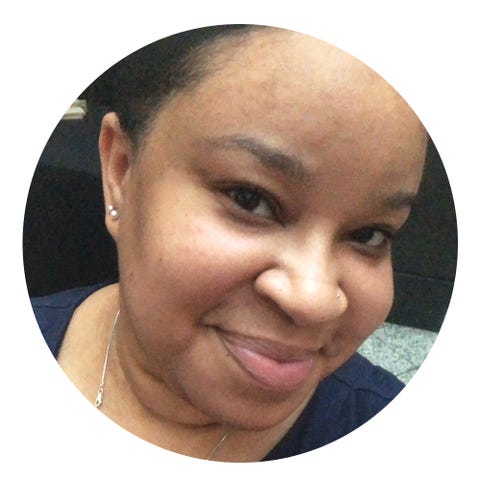
“As a Black woman that attended Howard University, this feels like a personal and professional victory. The installation of Senator Kamala Harris as the vice president of the United States is a unique opportunity to reflect on how this moment will affect politics moving forward. Having a Black woman serve in this capacity will hopefully broaden the conversation around a tangible Black women’s political agenda that will include addressing Black maternal health, equal pay, and an equitable plan to combat COVID-19 disparities. I also believe this will open doors for more women of color to run and win elections, from the top of the ticket to the bottom of the ballot. I’m confident this installation, and the election of more Black women to Congress, will create more space to name that betting on Black female candidates is a winning strategy and that gendered misinformation, fundraising barriers, and general misogynoir in our elections have to be addressed. I am optimistic that Vice President Harris will continue to push the issues that she championed in the past, especially around women’s health, and that she responds with tangible solutions to the valid critiques that were made of her record. This installment makes the Howard University girl in me elated, the activist in me ready to hold this administration accountable, and the strategist in me excited to support radical Black women candidates across the country.” —Krystal Leaphart, racial and gender justice advocate
